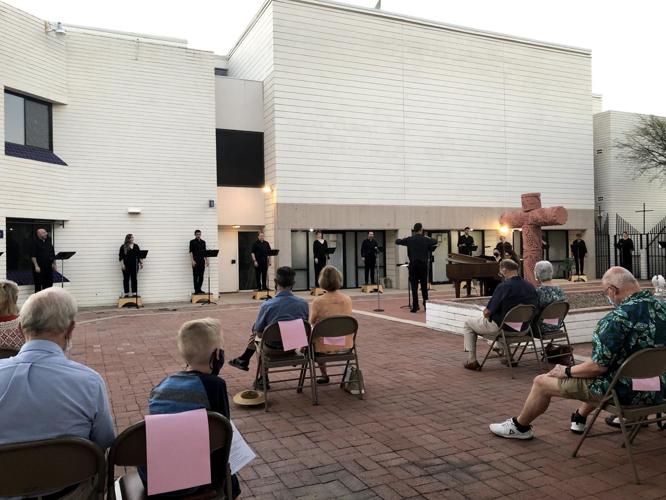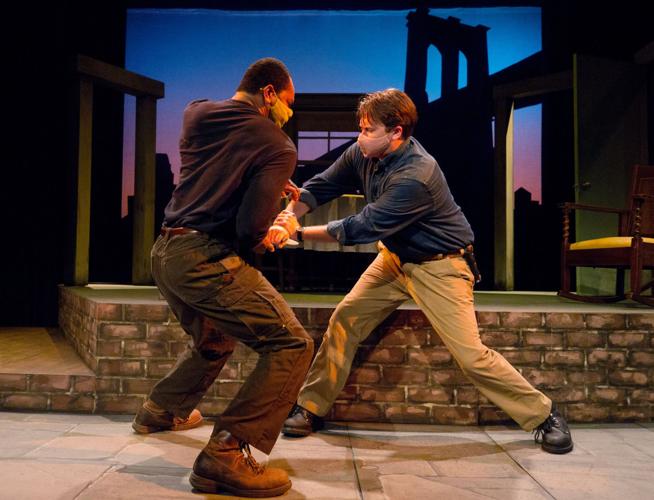Gifts aren’t just for family and friends.
They can also be for the soul of Tucson.
Arts groups have been ravaged this year, thanks to COVID-19.
The music has stopped, the drama has ceased, the dance has halted.
Among those hurting is Live Theatre Workshop, which generates 70% of its income from ticket sales. It has continued to produce plays, outdoors, with a stage in the parking lot and a limited audience watching from their cars.
“We are currently generating a fraction of a percentage of (former ticket sales) with our drive-in theater productions,” said Michael Martinez, the company’s executive director. “We had to suspend our paid internship program as well as reduce hours across the board.”
Musicians who patch together a living doing such things as teaching, playing for the symphony, and providing the soundscape for weddings and dinners, have been silenced.
Last spring, Benjamin Nisbet with the Tucson Symphony Orchestra started a GoFundMe campaign to provide relief for musicians (gofundme.com/f/tucson-musicians-covid19-relief). About $41,000 was raised and it provided help to 80 artists.
The need hasn’t dissipated so Nisbet recently relaunched that.
“With no COVID relief coming soon, we will try to help some folks out,” he said.
Arizona Theatre Company’s main stage productions have been shuttered since March and ATC doesn’t expect to start its 54th season until later next year. A group of theater lovers have come together and agreed to match up to $250,000 in donations. That “Bring Us Back to Live” campaign ends Jan. 28.
The Rogue Theatre has lost close to $200,000 in ticket sales, says Cynthia Meier, co-founder and managing director of the company. It has come up with an innovative way to present productions — actors are in masks, the dialogue is pre-recorded — but the plays have limited audiences so that safe distancing can be maintained.
True Concord Voices & Orchestra put on a fall “bubble season” — performers were isolated for the six-week duration — that included 24 concerts performed before limited audiences.
Music Director Eric Holtan said the organization launched a special fundraising campaign to address an anticipated deficit of $180,000, which represents 25% of its annual budget.
Even with limited audiences, it is essential that music continue, he said.
“With all the darkness now, we need hope,” he said. “Music and the arts can do that.”





